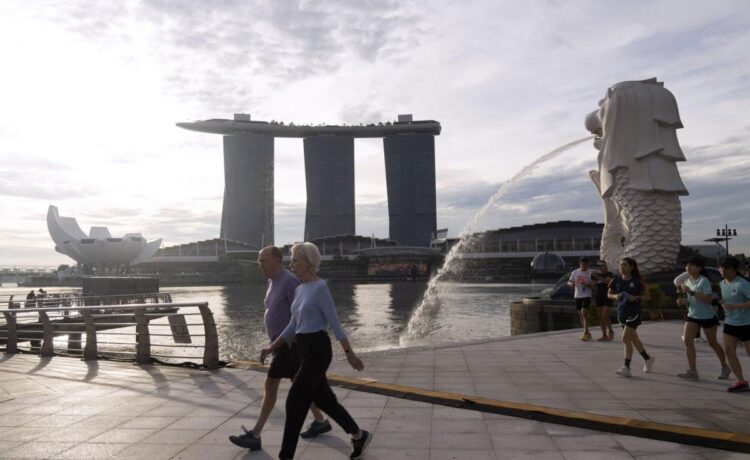(Bloomberg) — Singapore hedge fund Asia Genesis Asset Management Pte is closing its macro fund after suffering an “unprecedented drawdown” following China’s stock market rout and Japan’s rally.
Most Read from Bloomberg
Chua Soon Hock’s Asia Genesis Macro Fund had a loss of 18.8% in the first weeks of January, according to a letter sent to investors seen by Bloomberg News. The fund is returning money to investors after losses on long Hong Kong and China equities positions as well as short Nikkei bets, according to the letter.
“I have reached the stage whereby my confidence as a trader is lost,” Chief Investment Officer Chua wrote in the letter. Tough trading since October and a “disastrous” January “has proven that my past experience is no longer valid and instead, is working against me.”
Asia Genesis, which managed $330.2 million at the start of the year, didn’t immediately respond to a request for comment.
Chua said the fund made a “big mistake” in trying to pick the bottom of benchmark Hong Kong indexes. He was also “astounded” with the Nikkei-Hang Seng spread that priced Chinese and Japanese stocks at the same value as in 1991.
China’s benchmark CSI 300 Index hit a five-year low on Monday, as the ongoing housing slump curtails economic growth and deflationary pressure mounts. Hong Kong’s Hang Seng China Enterprises Index, tracking Chinese companies listed in the city, has lost more than half of its value since the end of 2020.
In contrast, Japanese stocks are on a tear, rising to a 34-year high this month as authorities and the stock exchange urge companies to boost shareholder value and corporate governance.
The meltdown in Chinese shares is wreaking havoc on the country’s asset management sector, pushing mutual fund closures to a five-year high in another sign of waning investor confidence.
Chinese Premier Li Qiang asked authorities on Monday to take more “forceful” measures to stabilize his country’s slumping stock market and investor confidence. China also needs to improve the consistency of its macro policies to consolidate the economic recovery, the cabinet said after the meeting.
So far, policymakers have refrained from taking aggressive steps to boost growth. In a speech at the World Economic Forum in Davos earlier this month, Li pointed out that the economy exceeded last year’s 5% growth target without resorting to “massive stimulus.”
“I still do not understand the inconsistency of China policy makers not fighting against deflation,” Chua wrote in the letter.
The last straw for Chua’s fund was hopes that China’s central bank would cut interest rates at a meeting earlier this month. But the People’s Bank of China disappointed investors by keeping the rate on its one-year policy loans unchanged. Additionally, President Xi Jinping’s speech the day after indicated to equity investors that his focus was not on the markets, said Chua. The fund then closed all the positions by Jan. 18.
Chua retired from the hedge fund industry for many years before deciding to return with a fund in 2020. His macro fund generated a 7.9% annualized gain between its May 2020 inception and the end of 2023, without a losing year.
“I have lost my knowledge, trading and psychological edge,” Chua wrote. “The principle of risk-reward for both the short term and long term has turned its head.”
–With assistance from Bei Hu, Henry Ren, Cathy Chan, Jacob Gu and Yiqin Shen.
(Updates with more comments from Chua in 10th paragraph。)
Most Read from Bloomberg Businessweek
©2024 Bloomberg L.P.














